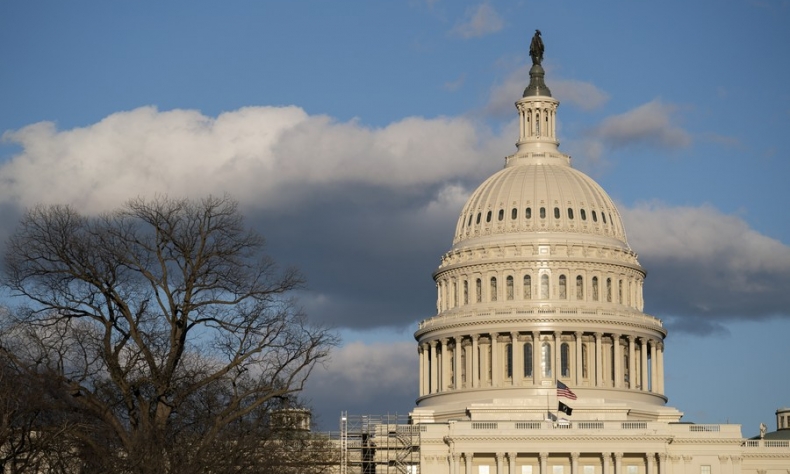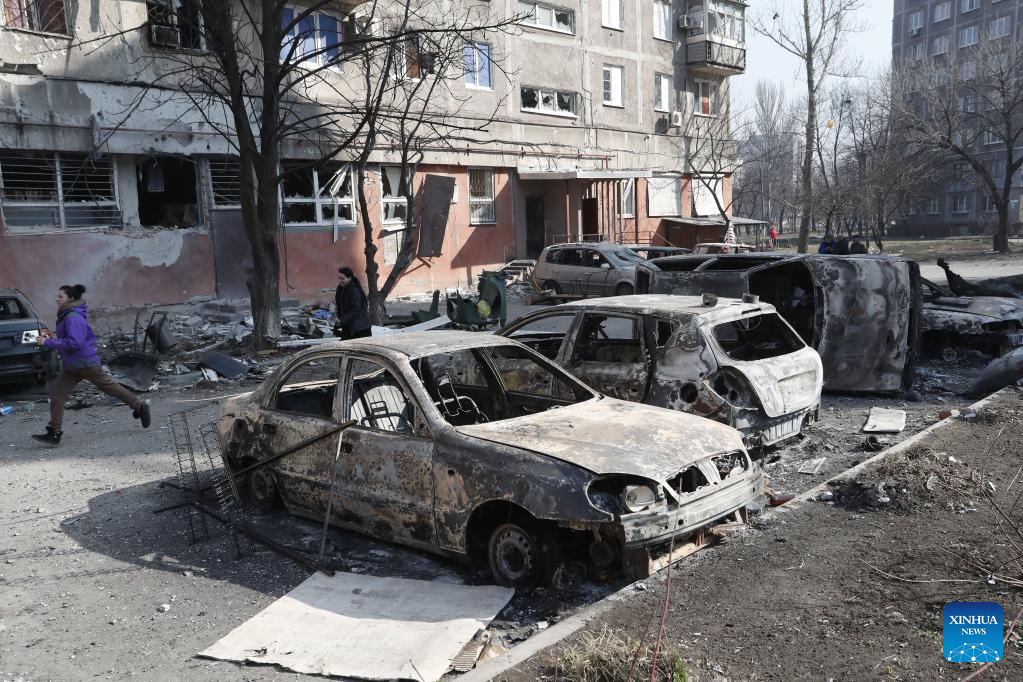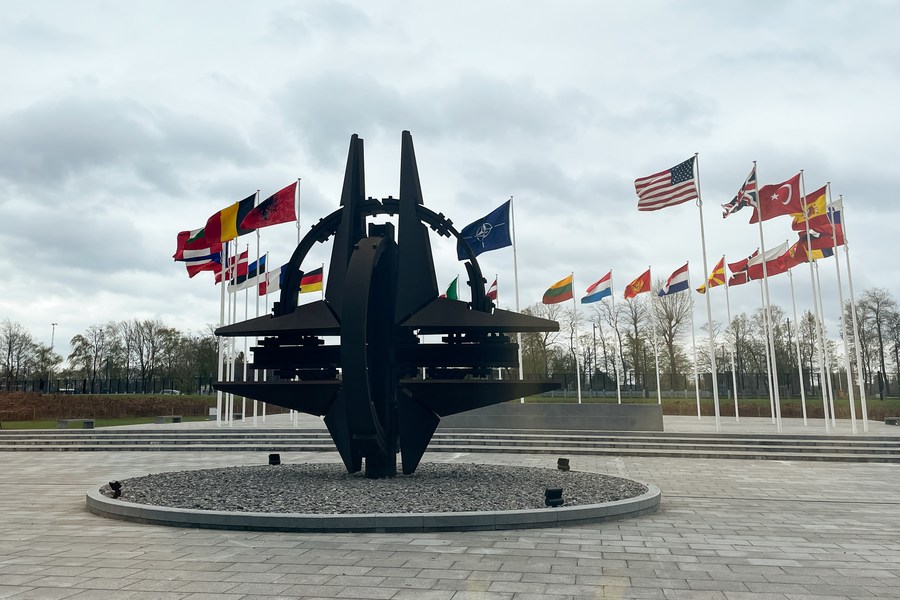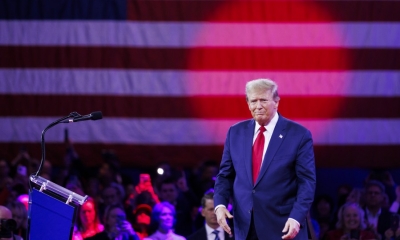Cold War Mentality Wreaks Global Havoc

Washington’s Cold War mentality and policy of confrontation, rejection of international law, and rejection of diplomacy wreaks global havoc economically, politically, and militarily.
Washington’s Cold War mentality wreaks global havoc. The destabilization of Europe and the increasing provocations in Asia by the United States can lead to another world war.
Political leaders, scholars, peace activists, and concerned citizens around the world are raising their voices expressing concern over the U.S.-led NATO war against Russia using Ukraine as a proxy. In Asia, there is growing concern about the rising tensions caused by the U.S.-led provocations against China using the Taiwan question as a proxy not to mention the escalating U.S. trade and tech war against China.
The Cold War ended through diplomacy in the late 1980s. President Ronald Reagan and President Mikhail Gorbachev negotiated the end of the Cold War. But in recent years, the U.S. and its NATO allies launched the New Cold War aimed against the return of Russia and the rise of China.
Often there is mention of the “Cold War mentality” and its negative impact on international relations. It is appropriate to examine the origins of this mentality in the United States foreign policy, national security, and military elites.
In the Cold War, “anti-communist ideology” as well as zero-sum thinking drove the Western geopolitical strategy of containing the Eurasian landmass. Soviet Union and China were the targets and a bi-polar bloc system emerged.
In the New Cold War, zero-sum thinking continues as does the strategy of the containment of the Eurasian landmass. So, Russia and China remain the Western targets.
After World War II, it was inevitable that the international system would change over time. The process of decolonization brought many newly independent countries onto the world stage. One could see then that a multipolar world would eventually emerge and that the U.S., the EU, Russia, China, and Japan would become major powers and actors and others would follow. In recent years, for example, India and ASEAN play important roles on the world stage.

Roots of Cold War mindset
But where does the Cold War mindset come from? What are its intellectual roots?
One explanation is that Washington’s Cold War mindset grew out of European 19th century Militarism. The phenomenon of Militarism in European intellectual, social, and political affairs supported European global economic expansion in the form of imperialism and colonialism. Militarism permeating rival European empires led to World War I.
There was, of course, opposition in Europe to Militarism. This came in the form of Internationalism which emphasized solidarity and cooperation among and between peoples and states. Internationalism promoted constructive bilateral and multilateral diplomacy as a way to promote peace and development.
Diplomacy in 19th century Europe was active following the Napoleonic wars and the Congress of Vienna of 1815. This diplomacy aimed to stabilize European relations and to promote cooperation rather than confrontation. Major Powers put aside their differences and found a way to cooperate for their mutual benefit.
The intellectual roots of Militarism in Europe go back centuries but in the late 19th century the influence of the German philosopher Friedrich Nietzsche, a proponent of power politics, was widespread. He coined the phrase “will to power” and rejected traditional moral values. Nietzsche’s philosophy circulated and combined with the ideas in England of Charles Darwin and his concept of the “survival of the fittest.”
Historic Militarism combined with this 19th century power political philosophy and in turn justified, as well as inspired, European imperialism. Rivalry between empires ensued which led to the clash of German, British, French, and Russian national imperialisms that climaxed in 1914 in World War I.
Is the world today at a 1914 moment?

Washington, Militarism, and Imperialism
The U.S. War against Spain in 1898 was an early indication of certain U.S. elites adopting modes of European Militarism and national imperialism. This was a departure from an earlier U.S. tradition of anti-imperialism and anti-colonialism emerging from the era of the American Revolution and War of Independence. Through the 19th century and into the 20th century, U.S. diplomacy emphasized International Law. But that changed with the Cold War.
As World War II ended in 1945, the Cold War began. In the United States, anti-communism was easy enough to whip up. But a more substantial intellectual foundation was needed for national strategy. On the one hand, a self-serving narrative was put forward that the U.S. was picking up the burden of policing the world that the British Empire had played. The U.S. would become the world “leader” heading up the Western bloc opposing the Eastern bloc.
On the other hand, U.S. academia provided the military and national security establishment with international relations theories to justify and adapt to orient Washington’s Cold War policy against the Eastern bloc. At the theoretical level, zero-sum thinking in the “us versus them” manner was quick to emerge.
Diplomacy to create conditions for a modus vivendi and for peaceful coexistence was sidelined in the rush to line up states to join the Western bloc. Non-western countries emerging from colonialism rejected this approach and sought non-alignment and peaceful coexistence. However, at that time, the Global South was not strong enough to resist although in today’s changing world it is.
U.S. academic circles and think tanks that supported U.S. imperialism and the military industrial complex put forth what they called the international relations theory of “Realism.” This theory emphasized zero-sum thinking and the “struggle for power” thus justifying the rise of the military-industrial complex in the U.S. and a foreign policy of imperialism. The theory also, in effect, rejected consideration of International Law. And taking International Organization and Global Governance seriously.

Professor Hans Morgenthau (1904-1980) who taught at the University of Chicago was one key figure in the transmission of European Realism to the United States. As a Jewish refugee he had left Nazi Germany and was fortunate to land a position at such a prestigious institution of higher learning. His books and writings became influential during the Cold War and still are influential in the present New Cold War in academic foreign policy and national security studies and also in government.
It is ironic that Morgenthau’s approach to international relations was grounded in Nietzsche given Nietzsche’s malign influence in Europe and in the Nazi Germany from which he fled to the U.S. in 1937. Nonetheless, Morgenthau advocated the reductionist and malign idea that all international relations are zero-sum and a “struggle for power.”
U.S. confrontation with Russia and China
The mindset of U.S. leaders today continues the zero-sum mindset of the Cold War. In recent years, the Obama administration was guarded in its rhetoric but the Trump and Biden administrations have not been. Washington’s zero-sum foreign policy is clear for the world to see. The latest U.S. tech war move against China involving semiconductor technology is the latest example.
In recent days, the U.S. Secretary of Defense General Lloyd Austin stated bluntly that the U.S. proxy war was aimed to “weaken” Russia. Not to be outdone, the U.S. Chairman of the Joint Chiefs of Staff, General Mark Milley, stated just as bluntly, that the U.S. proxy war in Ukraine “is to uphold the rules-based international order that was established some 80 years ago at the conclusion of World War II.”
Similar rhetoric is applied to U.S. policy against China involving the Taiwan question.
Washington’s Cold War mentality and policy of confrontation, rejection of international law, and rejection of diplomacy wreaks global havoc economically, politically, and militarily. In the interest of international stability, U.S. leaders must drop their Cold War mindset and seek peaceful coexistence and a modus vivendi with Russia and China.
The article reflects the author’s opinions, and not necessarily the views of China Focus.
 Facebook
Facebook
 Twitter
Twitter
 Linkedin
Linkedin
 Google +
Google +







